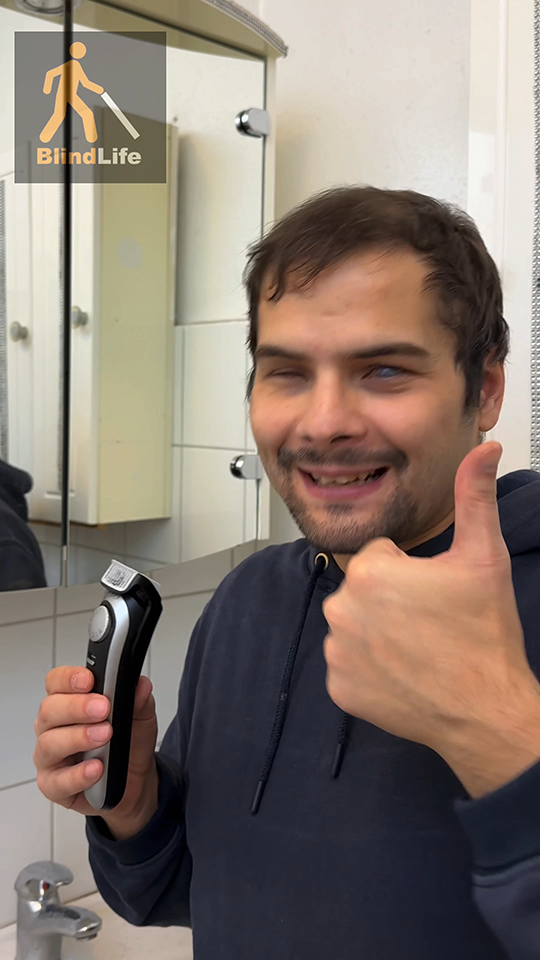In today’s global market, the need for brands to understand and engage with a diverse consumer base is more crucial than ever. The pathway to this understanding is paved with inclusive market research, a method that ensures every voice is heard, every perspective is considered, and every consumer feels seen. Through inclusive market research, brands can uncover a wealth of insights that not only fuel better decision-making but also foster genuine, long-term relationships with consumers. In this blog, we will explore what inclusive market research entails, why it’s a non-negotiable for brands striving for success, and how it’s being done right by businesses leading the charge towards inclusivity. So, let’s dive into the heart of inclusive market research, and discover why it’s an indispensable tool in a brand’s toolkit in the modern market landscape.
What is Inclusive Market Research?
Inclusive market research is an evolved approach to traditional market research methods, one that seeks to garner insights from a wide spectrum of individuals across different demographics and psychographics. It’s about ensuring that the voices of all consumer groups are heard, irrespective of their age, gender, ethnicity, disability, or socio-economic status.
In the realm of market research, inclusivity is not a mere checkbox but a commitment to understanding the diverse fabric of the marketplace. It’s about going beyond the usual suspects and engaging with individuals whose perspectives might traditionally have been overlooked or underserved. By doing so, brands can paint a more accurate and holistic picture of consumer needs, behaviours, and attitudes.
What may be included as part of inclusive market research?
Inclusive market research may consist of various methodologies and strategies aimed at capturing a wide range of perspectives. This could include:
- Employing diverse data collection methods such as surveys, focus groups, and interviews, designed to be accessible and welcoming to all, regardless of physical ability, language proficiency, or cultural background
- Reaching out to underrepresented groups and ensuring they have equal opportunity to participate and voice their opinions.
- Analysing and presenting data in a way that highlights the diversity of responses, rather than homogenising them.
- Incorporating feedback loops where participants can see how their input has been utilised and valued is a vital aspect of inclusive market research.
Is there a difference when also considering diversity and equality as well as inclusivity?
While they are often grouped together, diversity, equality, and inclusivity, often abbreviated as DE&I, have distinct meanings. Diversity refers to the representation of different groups, Equality is about ensuring equal opportunities, and Inclusivity involves including and valuing all individuals. All three aspects should be applied to market research to ensure a holistic, unbiased understanding of consumer needs and preferences.
In the context of market research, all three aspects should be applied to ensure a holistic, unbiased understanding of consumer needs and preferences. Integrating DE&I means not only reaching out to a broad audience but also creating an environment where feedback is welcomed, valued, and acted upon. It’s a shift from mere data collection to fostering genuine dialogues with consumers, thus enabling brands to build more meaningful and authentic connections.
The Importance of Diversity, Equality, and Inclusion in Research
Often, market research falls short of representing the myriad faces of society, particularly marginalised groups such as those with disabilities or ethnic minorities. Embedding Diversity, Equality, and Inclusion (DE&I) in business research is fundamental for unearthing authentic insights. When research mirrors the diversity of society, it leads to a deeper understanding, fostering a culture of respect among different social groups. This inclusivity not only improves communication but also helps create policies and strategies that serve a wider range of people, promoting unity and fair growth.
However, acknowledging and valuing the perspectives of minority groups not only ensures their representation but also helps businesses tailor products and services that resonate with a wider audience, enhancing societal well-being. This leads us nicely on to…
The Business Case For Inclusive Market Research
In a market that thrives on understanding and meeting consumer needs, inclusive market research emerges as a fundamental practice for sustainable business growth. It not only aligns with ethical standards but opens a gateway to untapped opportunities and insights that are critical for making informed business decisions. As we delve into the substantial advantages it brings to the table, it’s easy to see why inclusive market research is not just good practice, but good business.

The Value of the Purple Pound
The Purple Pound represents the spending power of disabled people and their families in the UK, which is estimated to be a substantial £274 billion. Despite this significant market segment, many brands inadvertently overlook the unique needs and preferences of disabled individuals, often due to a lack of inclusive market research. This oversight not only results in a missed opportunity to tap into a lucrative market but may also reflect a brand’s lack of inclusivity.
By conducting inclusive market research, brands can unearth the specific needs, preferences, and challenges faced by disabled individuals, allowing for the development of products, services, and marketing strategies that resonate with this audience. It can also help brands understand how their current offering is missing out on the potential The Purple Pound offers due to an inadvertent lack of inclusivity. Brands that tap into this demographic and the Purple Pound stand to benefit significantly.
Increased Loyal Customer Base
Inclusive market research fosters a deeper connection between brands and diverse customer segments by demonstrating a genuine understanding and appreciation of their unique needs and preferences. When customers see themselves reflected in a brand’s products, services, and marketing messages, they are more likely to develop a sense of loyalty. This loyalty often translates into repeat business, positive word-of-mouth referrals, and a stronger, more resilient customer-brand relationship. By adopting an inclusive approach to market research, brands can significantly enhance customer loyalty, which in turn, plays a pivotal role in sustaining business growth and ensuring a competitive edge in the marketplace.
Better Brand Reputation
In a world where consumers are becoming increasingly discerning, a brand’s reputation is invaluable. Engaging in inclusive market research is a testament to a brand’s commitment to understanding and valuing the diverse tapestry of its consumer base. When a brand is perceived as inclusive and socially responsible, it not only attracts a wider audience but also garners respect and trust. People are more likely to support and advocate for brands that reflect a broad spectrum of voices and experiences in their operations. The ripple effect of a positive brand reputation extends far beyond immediate sales, fostering goodwill, and establishing a foundation of trust in the broader community. Through inclusive market research, brands have the opportunity to significantly enhance their reputation, which in turn, contributes to long-term success and sustainability even in competitive markets.
Competitive Advantage
In a marketplace teeming with brands vying for consumer attention, possessing a competitive edge is crucial. Inclusive market research can be the catalyst that propels a brand into a position of competitive advantage. By understanding and catering to a broader spectrum of consumers, brands are better positioned to meet diverse needs that competitors might overlook. This inclusivity in insight not only leads to the creation of innovative products and services that resonate with a wider audience but also signals a brand’s progressive stance in embracing diversity. The resultant competitive advantage is not just about short-term wins but building a sustainable brand that is attuned to the evolving dynamics of a diverse consumer base.
Mitigation of Legal & Ethical Risks
Navigating the legal and ethical landscape in various markets and countries is a complex endeavour for brands, given the diverse regulatory frameworks and cultural norms. Inclusive market research sheds light on potential legal and ethical pitfalls that a brand might encounter, be it in advertising, product development, or market entry strategies. This proactive approach not only aids in averting legal complications but also in aligning the brand’s operations with ethical standards, which is increasingly becoming a determinant of consumer trust and brand loyalty.
Truly Identify & Understand Your Target Audience
In the quest to resonate with consumers, truly understanding the target audience is the linchpin. Inclusive market research delves deeper than traditional methods, unearthing insights beyond surface-level demographics. It challenges preconceived notions and allows brands to see beyond the superficial layers, getting to the heart of consumer needs, preferences, and behaviours. By engaging with a diverse range of individuals, inclusive market research helps brands to fine-tune their messaging, products, and services to align with actual consumer experiences and expectations, rather than assumptions. This understanding paves the way for more effective marketing strategies and a stronger, more authentic brand-consumer relationship.
It’s What Customers Want
In an era where consumers are empowered with choices, they are increasingly aligning with brands that reflect their values and acknowledge the diversity of their experiences. Inclusive market research is a pathway for brands to tune into this evolving consumer expectation. By actively seeking to understand and represent the voices in the market, brands demonstrate a commitment to inclusivity that resonates with modern consumers. According to various studies, including insights from Kadence, consumers today expect brands to play a part in addressing social and cultural issues. Engaging in inclusive market research is a tangible step towards meeting these expectations, showing that a brand is attentive and responsive to the needs and values of a broad spectrum of consumers.
The Challenges of Inclusive Market Research
Embarking on the path of inclusive market research is a progressive step, but it comes with its set of challenges. A key hurdle is ensuring a truly representative sample. It necessitates a deliberate effort to engage diverse groups, especially those traditionally overlooked. Each market is a complex mix of cultural norms and consumer behaviours, and navigating this cultural intricacy to ensure the research process is respectful and accommodative is another challenge.
The logistical aspect is also demanding. It may require more time, resources, and expertise to make the process accessible to all participants. This could mean creating accessible survey platforms, arranging for interpreters in focus groups, or investing in training for research teams on inclusivity and cultural competency. Analysing and interpreting data from a diverse respondent base can be complex, requiring a nuanced understanding to derive meaningful insights from a rich, multifaceted pool of data. Measuring the impact of inclusive market research is a long-term endeavour, focused on building and nurturing relationships with diverse consumer groups, the benefits of which may unfold over time. Despite these challenges, the insights gleaned from inclusive market research are invaluable for brands aiming to resonate with a broader audience and foster a culture of inclusivity in the marketplace and lucky for you, brands also have the option of hiring experts like Purple Goat to do the hard work for them.
Brands Who Have Clearly Got Their Market Research Right
There are already so many examples of brands who have clearly begun the journey of inclusive market research and are making strides in using their new knowledge to create more inclusive marketing campaigns, products, websites and more. To mane just a few examples:
Microsoft – We All Win
Addressing the challenge faced by children with physical disabilities in using traditional gaming controllers, in 2019 Microsoft developed an alternative controller with touchpads instead of buttons and bright colours for the visually impaired. Their inclusive approach was encapsulated in the Super Bowl commercial, “We All Win,” depicting how the adaptive controller significantly enhanced the gaming experience for children with different abilities. By promoting accessibility and inclusivity in gaming, Microsoft not only captured the essence of understanding its diverse user base but also showcased a remarkable example of product innovation driven by inclusive market research.
Braun – #StyledByMe
Braun and Purple Goat recently collaborated on an insights and influencer campaign. We completed some inclusive market research through the use of a survey and creator interviews, comparing the personal grooming habits and style of non-disabled and visually impaired males. We learnt that males who have a Visual Impairment care a lot about how they look as it affects how confident they feel, we used this key insight to underpin the creative concept for the influencer concept.



Concluding Thoughts – Inclusive Market Research
In a marketplace as vast and varied as the populace it serves, the imperative for brands to engage in inclusive market research is clear. This research reveals a tapestry of insights that propel brands beyond mere transactions to foster meaningful connections with a broader spectrum of consumers. By embracing a research ethos that honours the diversity of experiences and expectations, brands are not only aligning with a modern, socially conscious consumer ethos but are also crafting a pathway to sustainable success. The dialogue between brands and consumers is enriched, the understanding is deepened, and the marketplace becomes a more inclusive domain. As we’ve explored, the journey of inclusive market research may pose challenges, yet the rewards are profound. Engaging with the multitude of voices in the market isn’t merely a good-to-do; it’s a must-do for brands aspiring to thrive in today’s global market. Through the lens of inclusive market research, brands can truly listen, learn, and lead in a way that honours the collective voice of all consumers, heralding a new era of business that is as empathetic as it is enlightened.
Ready to unlock the vast potential of inclusive market research? Contact Purple Goat’s team of experts today to learn how our tailored research services can elevate your brand to new heights.




